| Bishop Vashti Murphy McKenzie – NCC Interim President/General Secretary The 11th Assembly of the World Council of Churches met in Karlsruhe, Germany recently where thousands gathered from diverse communions to continue the work of “…the unity of the church and the unity of humankind.” Dr. Agnes Abuom, moderator of the WCC Central Committee said that our prayers were many. The included creating “..an enabling environment for prayer, celebration, discussions, exchange of views and ideas, as well as a glimpse of church life in Germany.” Under the theme “Christ’s love moves the world reconciliation and unity”, delegates and participants tackled tough issues that was both challenging and inspiring. Daily prayers in a variety of languages with music reflective of every corner of the globe strengthen the ecumenical fellowship. Presenters in the thematic plenaries were relevant on a variety of subject matter that touched on racial injustice, the plight of indigenous people and environmental concerns. Our small group work was done either in home bible studies or in ecumenical conversations. I left the gathering with great hope and great disappointment. Great hope that Christians from all over the world from diverse faith traditions and reformations were able to pray, worship and study together. The Holy Spirit permeated the cacophony of the sounds of worship so that as we were immersed with traditions not our own, we could feel the presence of God. I felt hope as the delegations from Russian and the Ukraine were in the same place as the WCC tried to reach a consensus that would express the outrage of an unprovoked war, give voice to both delegations of the same faith tradition and leave with a statement that does not put people’s lives in jeopardy when they return home. Hope that indigenous people were given voice and place to express their current issues. Hope that the crises in the Middle East had a hearing that express the human cost and concerns for religious freedom. There was hope as the young adult delegates demanded a seat at the table. They made impact advocating for their full participation – allow us to participate now so that you will have a church in the future. So many signs of hope including making new global friends. Hope that we could challenge one another and still do the work of consensus building as a decision matrix. It looks consensus building is a pathway to failure yet emerges as a pathway of seeking common ground amid competing interests. |
| I was honored to be elected to the Public Issues Committee. It is one of the hardest working committees of the assembly meeting in between sessions, sometimes late into the evening or very early in the morning. The work of this committee provided a safe space for serious engagement on the trauma and suffering of people, the struggle with the legacies of colonialism, creation justice, the ravages of war and the things that make for peace in a divisive world We sat together Russian and Ukraine, Middle East and Africa, Pacific, Asian and the Americas. We prayed together. We worked together through difficult conversations. Bishop Dr. Heinrich Bedford-Strohm, Evangelical Lutheran Church, Bavaria was elected the new Central Committee Moderator along with two Vice Moderators. One is a member of NCC’s Executive Committee, H.E.Archbishop Dr. Vicken Aykazian, Armenian Apostolic Church. The other is the Rev. Merlyn Hyde Riley, Jamaica Baptist Union. Also, Rev. Dr. Angelique Walker-Smith, National Baptist Convention USA, Inc., was elected as the North American president, one of eight regional and Orthodox presidents elected by the Assembly. “Where people are suffering, where people cry out for justice, the church must be an agent to give them a voice and to make visible how the church can be the salt of the earth and the light of the world,” said Bishop Bedford-Strohm. Bishop Sally Dyck, Ecumenical Officer, United Methodist Church and a member of NCC’s Governing Board was also elected to WCC’s Executive Committee. Several persons of NCC communions were elected to WCC’s Central Committee including: NCC’s Executive Committee member and Board Treasurer, Rev. Dr. Teresa Hord Owens, General Minister and President of the Christian Church (Disciples of Christ) in the United States and Canada; Ms. Kathryn Lohre, Executive, Ecumenical and Inter-Religious Relations at the office of the Presiding Bishop, Evangelical Lutheran Church in America; Bishop Brian Thompson, African Methodist Episcopal Zion Church; Rev. Dr. Jennifer Leath, African Methodist Episcopal Church; Evelyn L. Parker, Christian Methodist Episcopal Church; Dr. Raimundo Barretto, American Baptist Churches, and others. |
| Rev. Dr. Angelique Walker Smith – WCC president from North America; National Baptist Convention, USA, Inc.; Bread for the World USA I am grateful for this invitation from our Interim General Secretary, Bishop Vashti Murphy McKenzie. Invitations like this are consistent with her steady pulse of inviting us to be a community. In Karlsruhe, she invited us for our group photo and North American regional meeting. She also gave voice to our WCC Public Issues Committee that brought substantive advocacy proposals for the ecumenical movement. We have and continue to appreciate her presence and leadership of our NCCC then and as we return to North America. The Assembly was also invitational and built community. Although any of us wondered if an Assembly would event be possible because of COVID and other intersectional issues but alas the prayers and diligent labors involved prevailed and God’s grace was extended for this. This testimony to grace was animated and amplified particularly in the worship and prayer times. The contributions from the world in our devotional life was powerful and inspirational not only for the Assembly but for our being back to our regional homes. The plenaries engaged us and helped us to remember days past and the people who have brought us thus far by God’s grace. The Ecumenical Conversations and Brunnen engagements were particularly engaging and allowed us to go beyond the face of the issues and to create community exploration at the micro and macro levels. The Pre-Assemblies were strategic to building community. The voices of the Community of Women of Men, Indigenous communities, those who are differently abled and the youth the Global Ecumenical Theological Institute (GETI) played key roles in laying the foundation for deepened inclusion during the Assembly. I heard from many who appreciated this traditional entry point for those who have not been at an Assembly. I am grateful for the continued space and support of the WCC related Pan African Women of Faith/Pan African Women’s Ecumenical Empowerment Network (PAWEEN) and WCC related Africans and Africans in Diaspora (AAD) that go forward and speak directly into mutual priorities of the North American region and the WCC. I am also particularly grateful for the leadership of our WCC Moderator, Dr. Agnes Abuom, our Vice Moderators, Bishop Mary Ann Swenson, the late Metropolitan Gennadios, our General Secretaries since Busan and the faithfulness of the past Central and Executive Committee who served for 9 years versus the conventional 7-8 years. A period that included the challenges of the pandemic and racism, increased climate change and conflicts. It was not easy to go forward when so much threatened this possibility. I thank God for all of you and look forward to serving with the elected WCC leadership and our North American region going forward in the global space with the NCC and WCC. Thank you for the invitation to serve you. |
| Rev. Dr. John Dorhauer – General Minister and President, United Church of Christ These last two weeks in Germany were a dramatic testimony to the power of Christian siblings coming together in love and fellowship. Greeting dear friends whom we have been unable to see through the season of pandemic was absolutely delightful; and meeting new friends from all over the globe was rewarding. I deeply appreciated the way the body wrestled with tough issues that we knew had the potential to divide us. The pair of matters surrounding the war in Ukraine and the plight of Palestinians in the Occupied Territories demonstrated our collective capacity to stay in dialogue with each other even when the disagreements are pronounced and passionate. This ability to model civil discourse and love across divisions can become a balm to a world drifting father and farther apart. Just as rewarding was the unity with which we spoke of the urgency for the body of Christ to organize our collective capacity to seek a pathway through the climate crisis. Throughout the Assembly, we iterated our clear commitments to ending the crisis and rescuing a planet in the throes of an apocalyptic, dystopian unraveling. That was very gratifying, and I pray with fervor that we all take action and combine our efforts to raise consciousness and commit to lowering our carbon footprint. Finally, let me say that of all the wonderful things we experienced, the worship for me had to be the highlight of them all. To see and hear and experience every morning the beauty of every culture expressing itself in sacred language, art, dance, and music had me wondering if this wasn’t what heaven will be like. I didn’t want it to end. I will never forget it. |
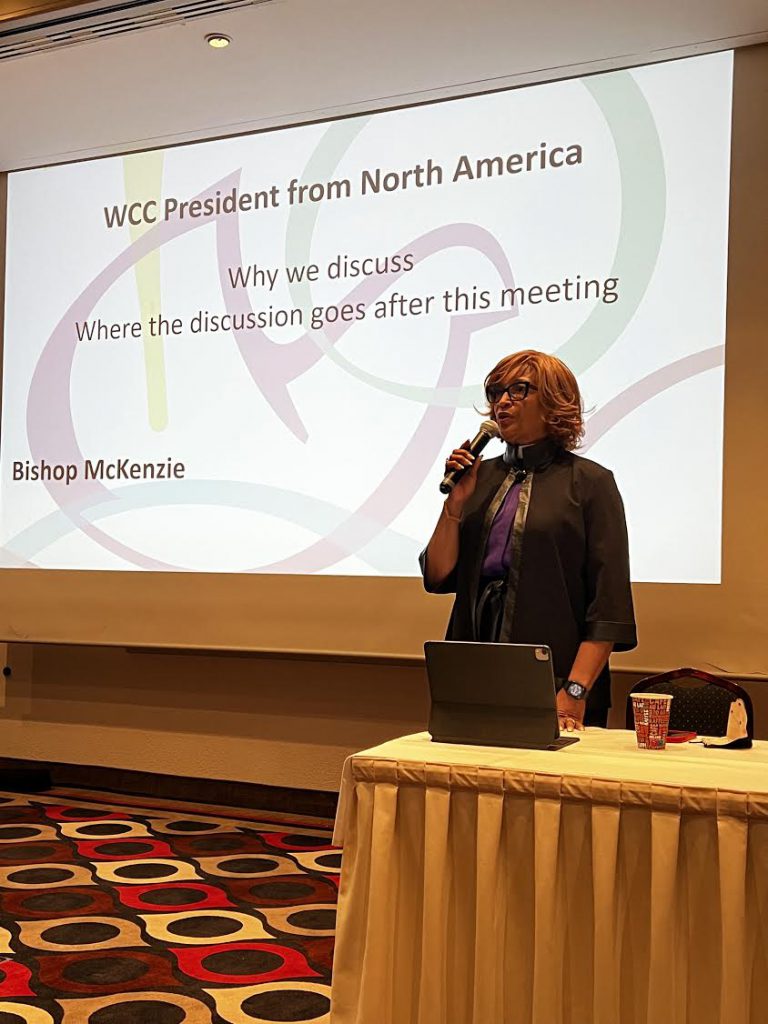
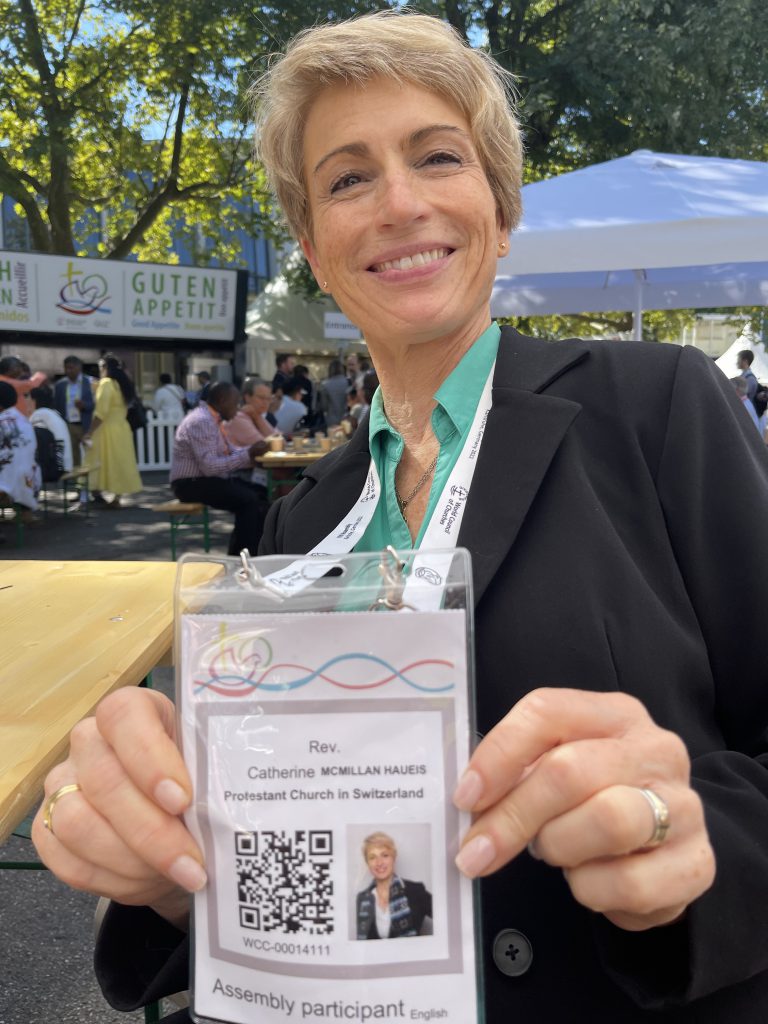
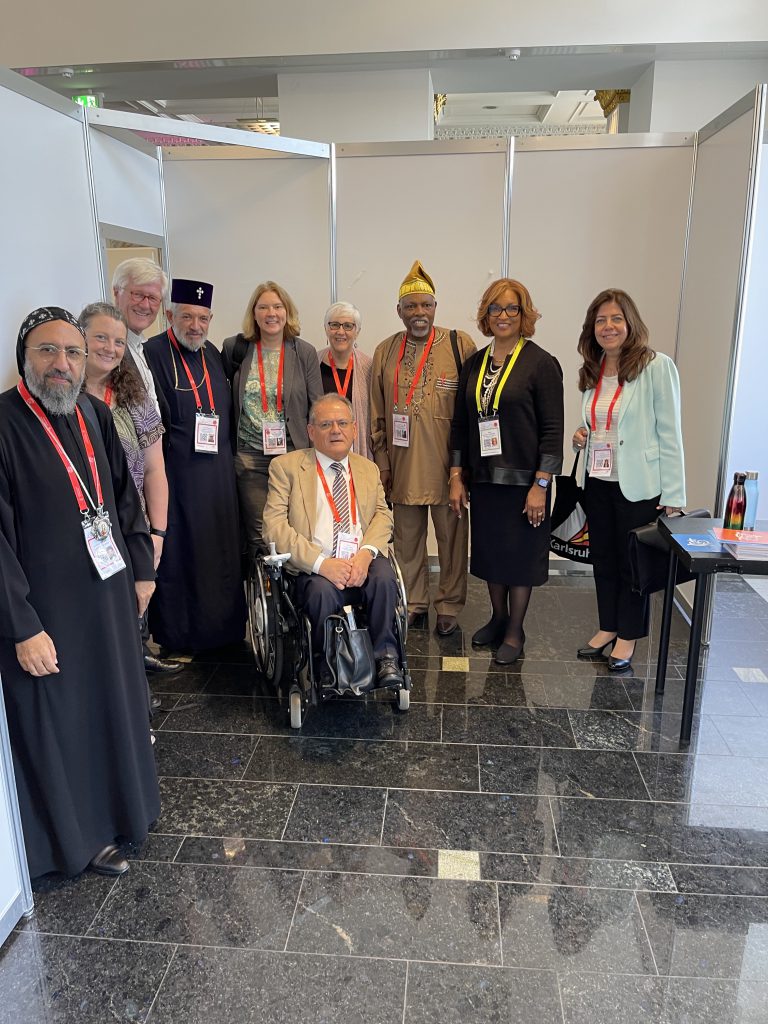

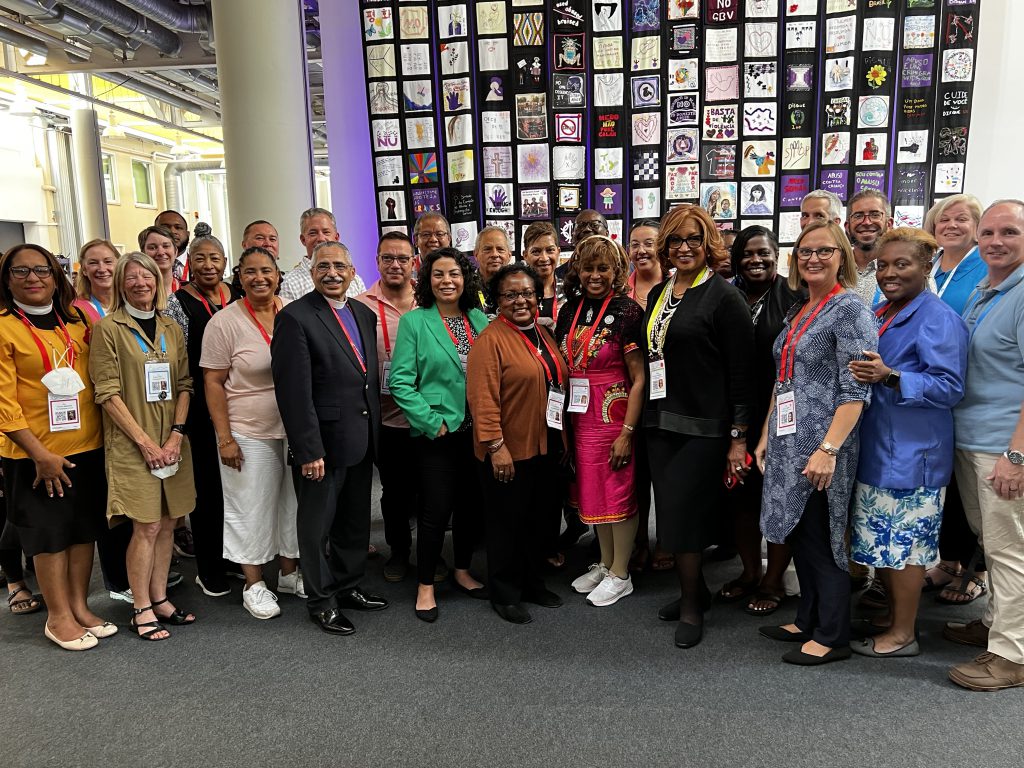
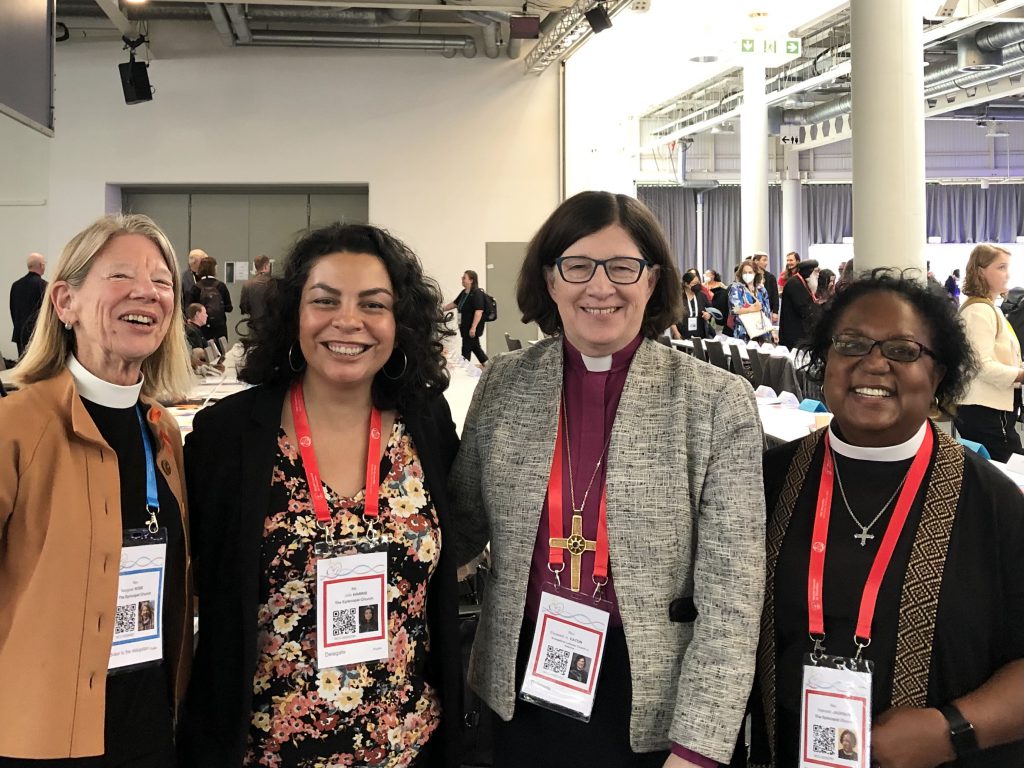
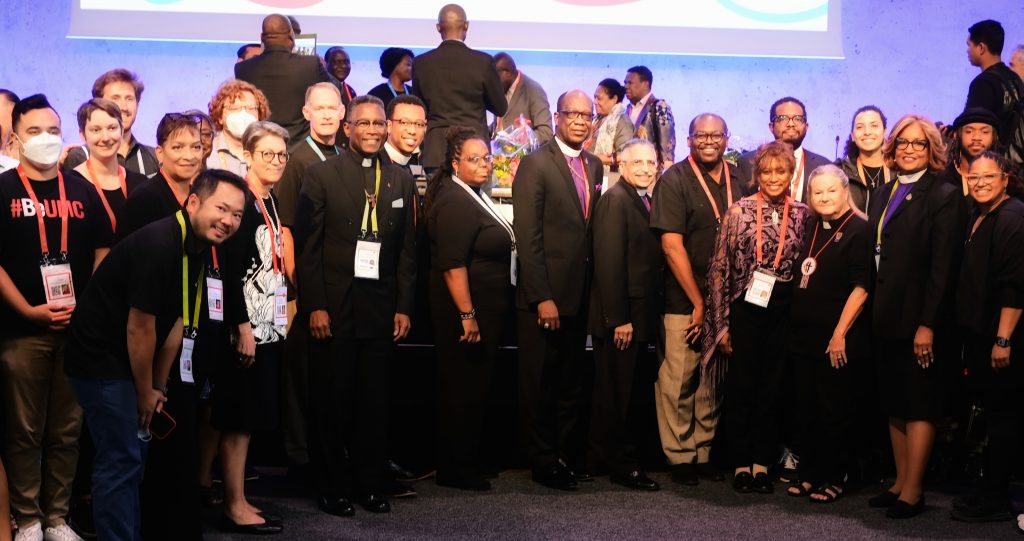

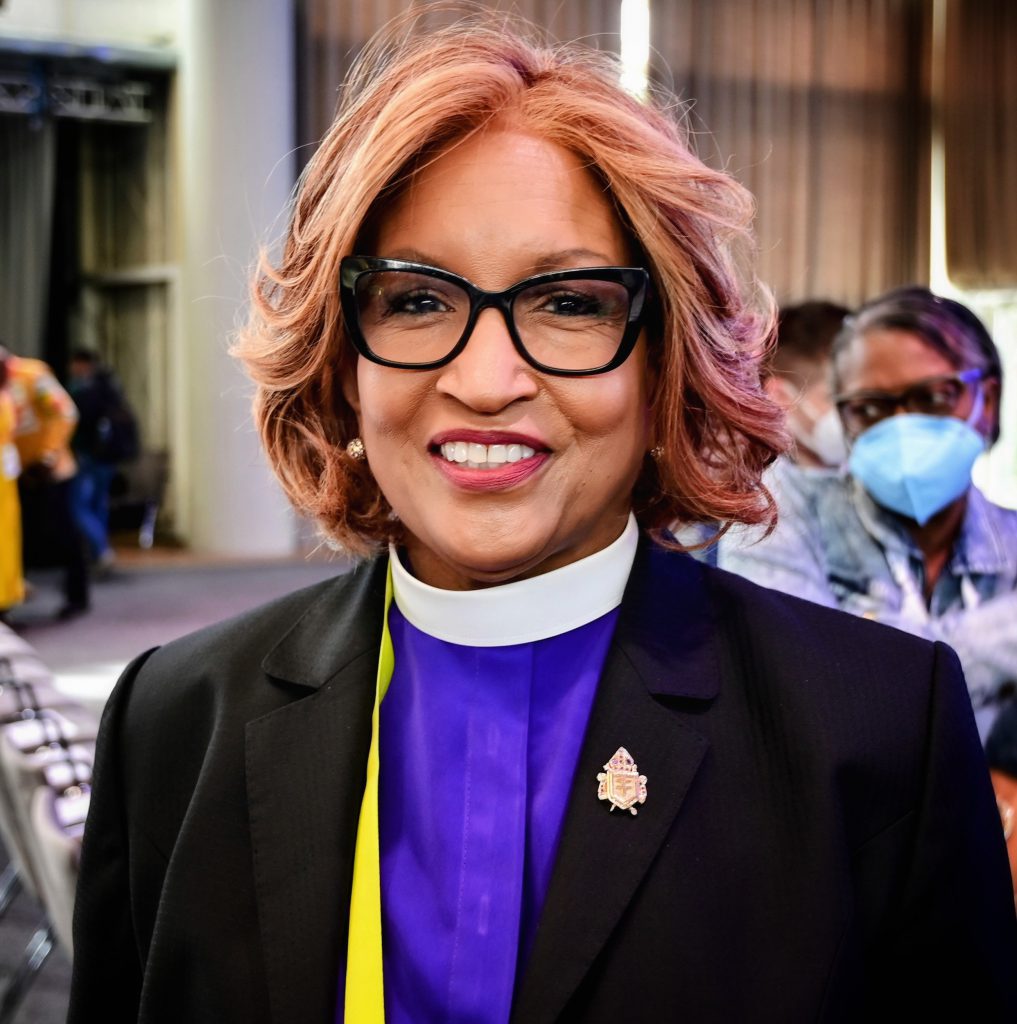
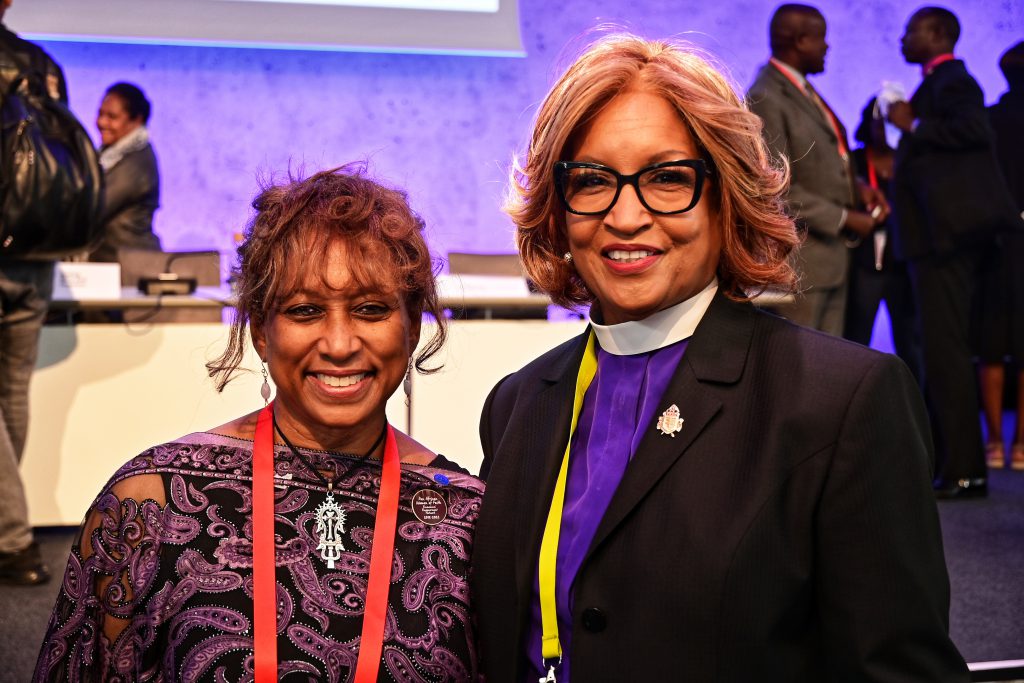
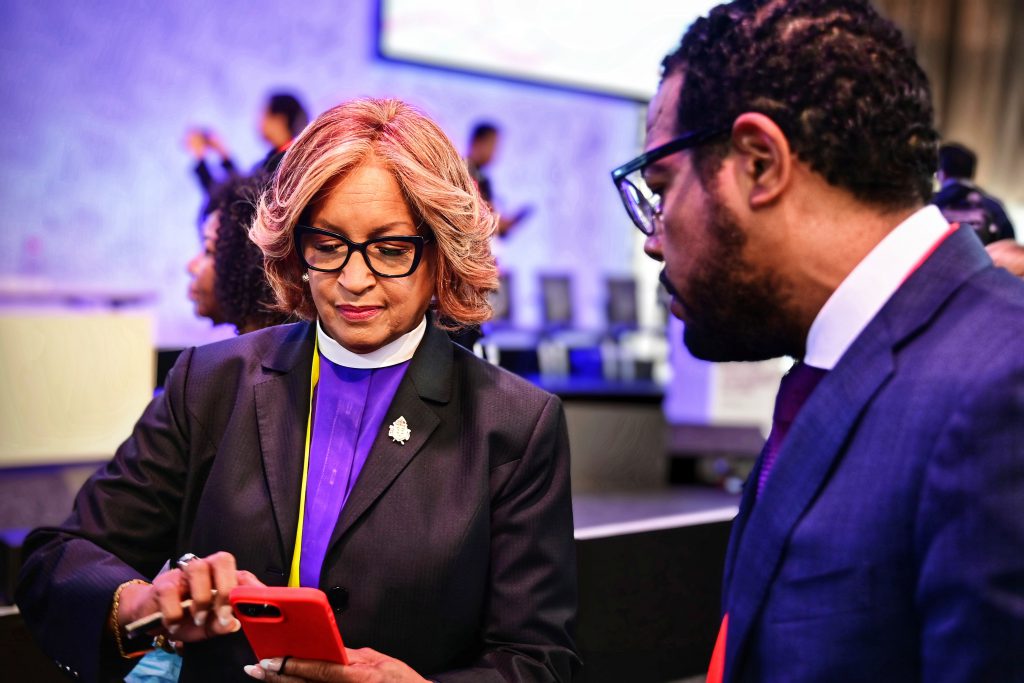
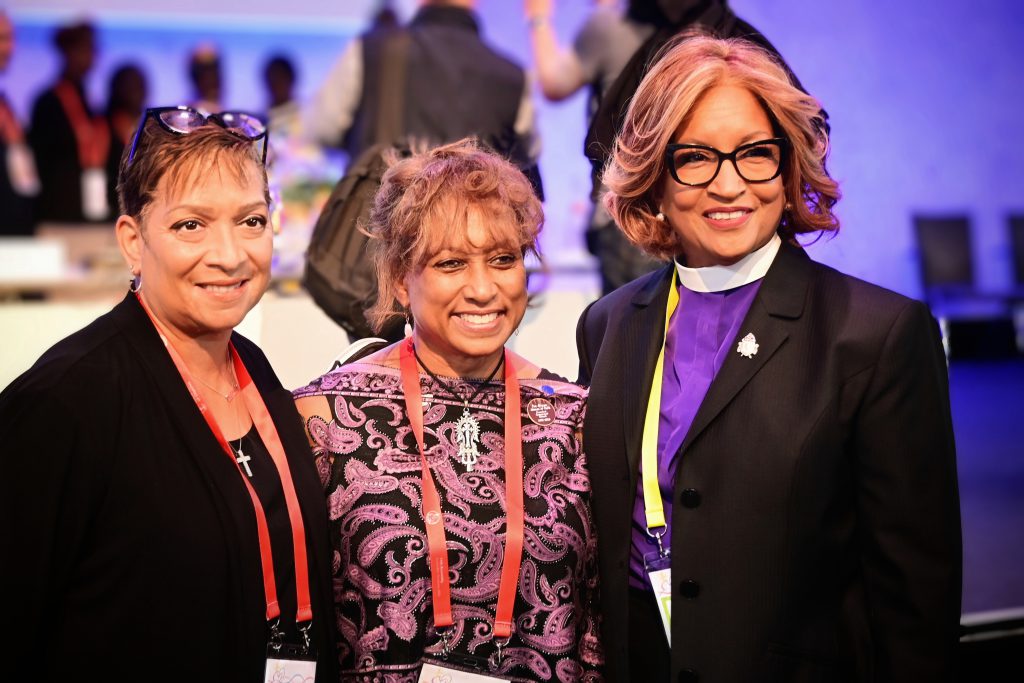
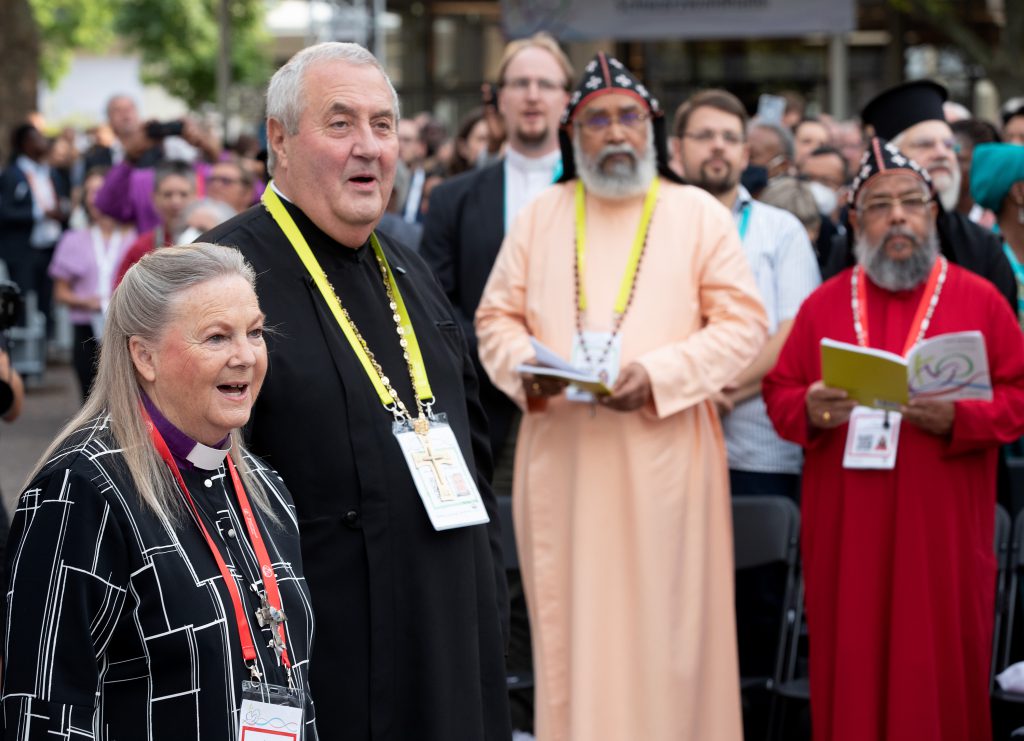
31 August 2022, Karlsruhe, Germany: United Methodist Bishop Mary Ann Swenson (left) and the Rev. Dr. Ioan Sauca join in singing during the opening prayer service for the World Council of Churches’ 11th Assembly in Karlsruhe, Germany. The assembly takes place August 31 to September 8 under the theme “Christ’s Love Moves the World to Reconciliation and Unity.”
